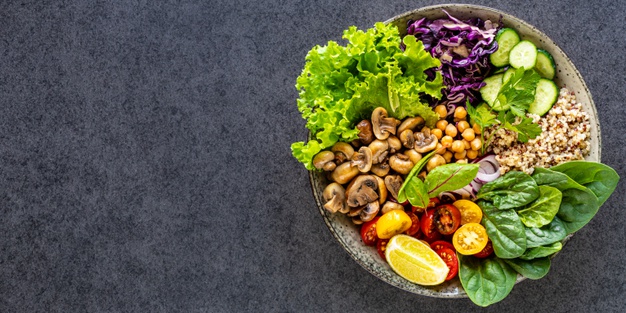
This is A Complete Guide On What Is A Healthy Diet!
So What Is A Healthy Diet? Is it what we eat, how we eat, when we eat? – You are probably familiar with the food pyramid provided by the health experts out there. There is dairy in there, meat products, bread, veg & fruit. But how accurate is it? – Truthfully – not very accurate.
So, What Is A Healthy Diet
It’s when you reduce the consumption of processed foods ( not completely excluding processed foods – I will explain more about this below), excessive consumption of salt, sugar & alcohol. Basically – everything that’s man-made touched, and processed by us humans, is not healthy. I am not saying that boiled carrots are unhealthy, but obviously the more you process something the unhealthier it gets. Although there are some exceptions and some research done on the benefits of cooked vegetables.
That’s it guys – simple as that.
Common Myths That Are Not True:
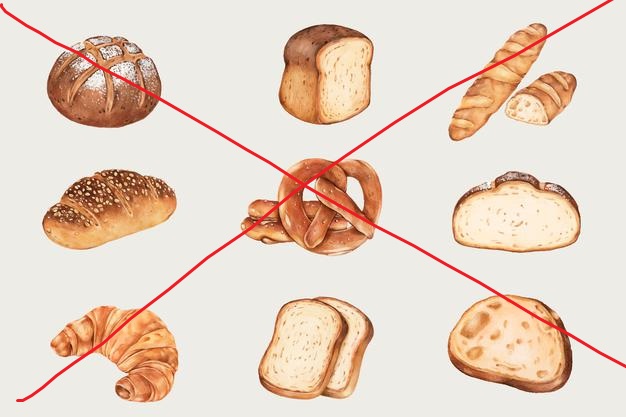
1. “You SHOULD completely eliminate all processed foods and sugar” (e.g ice-cream, cookies, pizza, burgers, fries, etc) – Now there is some truth in this, obviously, the less processed foods you consume – the healthier your diet will be. The problem in that is, that restricting will lead to binging and progress being lost. Just like weight-loss – I never recommend eliminating food groups completely. Remember – everything in moderation. A healthy diet doesn’t just mean what we put in our stomach, it comes down to our mentality. If we are deprived of what we want, our desires, and our needs, we will not be happy. And if you are not happy – what’s the point of putting healthy stuff in your body for the price of your happiness?
2. Myth 2 – Carbs are bad:
Depends on the carbs!
There are two types of carbohydrates; simple and complex.
The simple carbs are the carbohydrates we don’t really need and are not really useful to our body, except for the simple carbs that come from fruit, they are healthy in moderation.
The simple carbs we don’t really need in our diet include:
White flour, cakes, refined sugar, white pasta, pastries, cookies…etc. Which comes down again to what? – Processed food!
So limiting these would be beneficial, but a treat every once in and while won’t do you any harm either.
Complex carbs pack in more nutrients than simple carbs. They’re higher in fiber and digest more slowly. This also makes them more filling, which means they’re a good option for weight control.
They’re also ideal for people with type 2 diabetes because they help manage blood sugar spikes after meals.
Fiber and starch are the two types of complex carbohydrates.
The main sources of dietary fiber include:
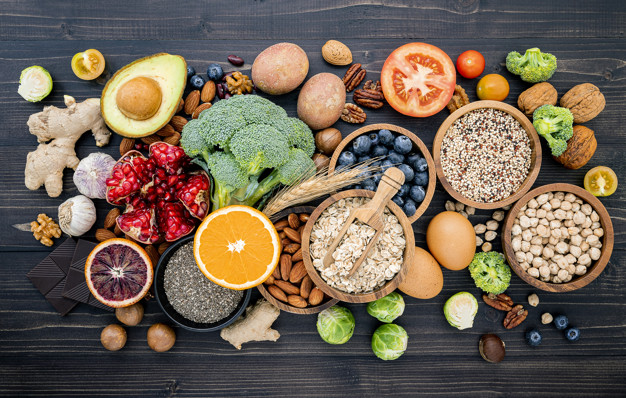
- Vegetables
- Beans
- Whole Grains
- Nuts
- Fruit
A diet rich in these foods will benefit you in hundreds of ways. It’s the part of eating healthy. Eating healthy is a diet that consists of whole foods, mainly plant-based.
And with as little processed food as possible.
3. Myth 3 – Fat is bad.
No, no no! Fats are so, so important to our diets! Of course, there are unhealthy fats, like trans fats, and constantly reheated oil, which is mainly used in fast food chains or takeaways. Once again – it’s processed, which we know not to consume excessively if we want to have a healthier diet.
When the oil is heated repeatedly, it may alter the fatty acid composition of the oil. Heating causes the oil to undergo a series of chemical reactions like oxidation, hydrolysis, and polymerization.
There are some researches that claim that constantly reheated oil may be one of the reasons for causing cancer.
It mostly has to do with the fact that its Highly Processed Food and a diet rich in highly processed food is a one-way ticket to cancer, diabetes, heart disease, and obesity.
Let’s talk about what fats are healthy:
1. Avocados!
Now, Avocados are a hit and miss with some people. They find them disgusting, mostly because of their mushy texture. But trust me, avocados are really good for you! They contain high amounts of fat, but the fat within them is extremely beneficial to the body. The fat within the avocados is monounsaturated fat, which is a healthy fat.
Monounsaturated is proven to lower cholesterol. Avocados are really rich in Omega 3 fatty acids, which is another very healthy fat to include in your diet. Their fat content may help you absorb nutrients from plant foods.
When it comes to nutrients, your intake is not the only thing that matters.
You also need to be able to absorb these nutrients — move them from your digestive tract and to your body, where they can be used.
Some nutrients are fat-soluble, meaning that they need to be combined with fat in order to be utilized.
Vitamins A, D, E, and K are fat-soluble along with antioxidants like carotenoids.
One study showed that adding avocado or avocado oil to either salad or salsa can increase antioxidant absorption.
Avocados are rich in some vitamins, and contain more potassium than bananas!
Avocados are also high in fiber, and fiber is really, really important to our diets.
100g of avocado packs 7g of fiber!
2.Nuts
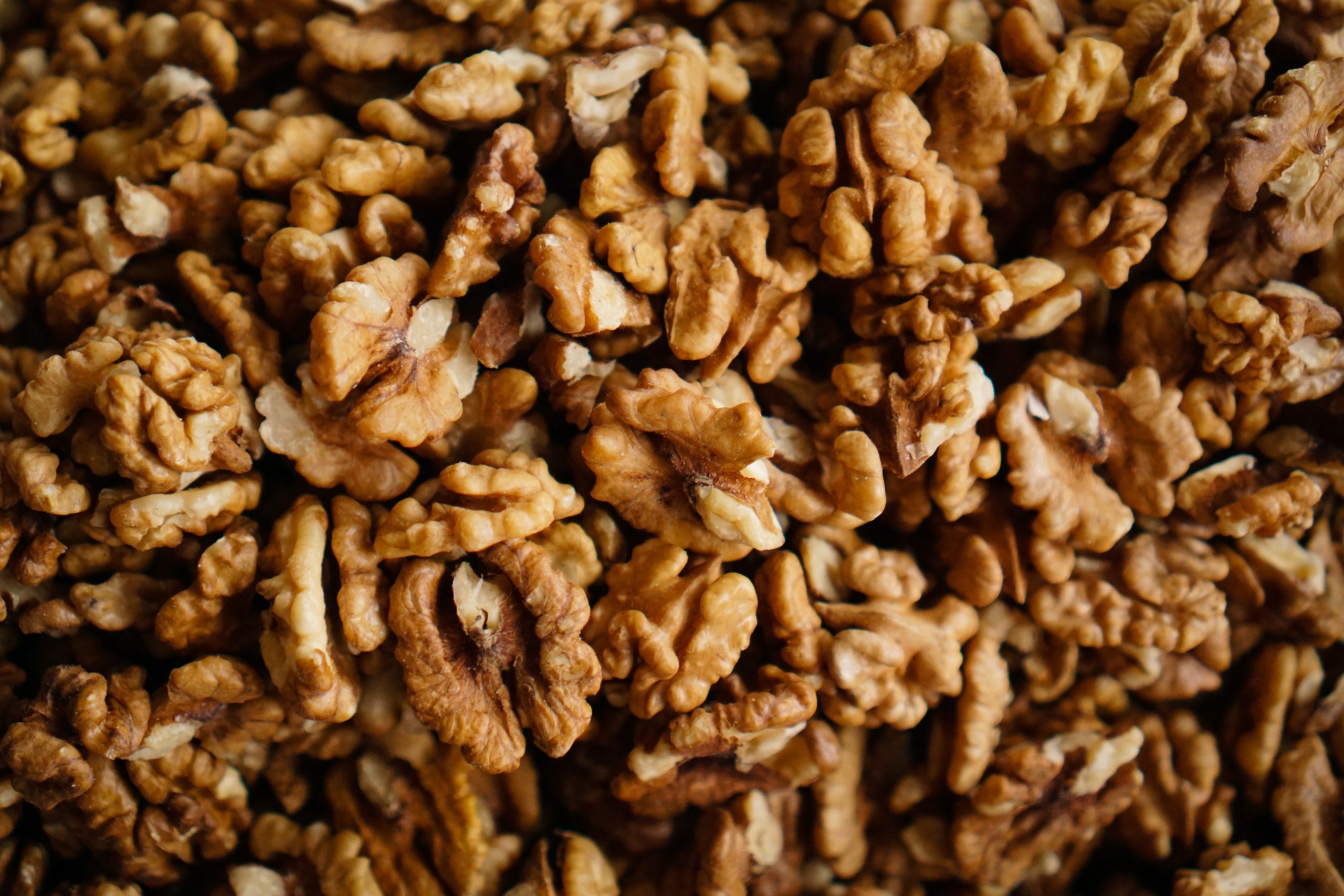
Another healthy fat to look out for. Nuts are high in fat and calories yes, but they have good fat and numerous benefits to the body. Nuts are good sources of fat, fiber, and protein. Most of the fat in nuts is monounsaturated fat, as well as omega-6 and omega-3 polyunsaturated fat.
However, they do contain some saturated fat.
Nuts also pack a number of vitamins and minerals, including magnesium and vitamin E. Many studies have investigated the health benefits of increased nut intake.
One meta-analysis of 33 studies found that diets high in nuts do not significantly affect weight gain or weight loss.
Yet, despite having little effect on weight, many studies have shown that people who eat nuts live longer than those who don’t. This may be due to their ability to help prevent a number of chronic diseases.
For example, nuts may reduce risk factors for metabolic syndromes, such as high blood pressure and cholesterol levels.
Nuts may reduce your risk of other chronic diseases. For example, eating nuts may improve blood sugar levels and lower your risk of certain cancers like bowel cancer.
3. Seeds
- Pumpkin seeds
- Sunflower seeds
- Flaxseed
- Chia seeds
- Sesame seeds
These are all healthy seeds to include in your diet.
Seeds are great sources of healthy fats, vegetarian protein, fiber, and antioxidant polyphenols. They can help reduce the risk of certain diseases. In particular, the lignans in certain seeds may help lower cholesterol and the risk of cancer.
Seeds are extremely easy to add to salads, yogurt, oatmeal, and smoothies, and can be an easy way to add healthy nutrients to your diet.
Flaxseeds:
Also known as linseeds are a great source of fiber and omega-3 fats, particularly alpha-linolenic acid.
However, the omega-3 fats are contained within the fibrous outer shell of the seed, which humans can’t digest easily.
Therefore, if you want to increase your omega-3 levels, it’s best to eat flaxseeds that have been ground
Chia Seeds:
They are very similar to flaxseeds because they are also a good source of omega-3 fats, along with a number of other nutrients. Omega-3 fatty acids help raise HDL cholesterol, the “good” cholesterol that protects against heart attack and stroke.
They are also rich in antioxidants, and they provide fiber, iron, and calcium.
Because of its high soluble fiber content, chia seeds can absorb up to 10–12 times their weight in water, becoming gel-like and expanding in your stomach.
Theoretically, this should increase fullness, slow absorption of your food, and help you automatically eat fewer calories.
Fiber also feeds the friendly bacteria in your intestine, which is important — keeping your gut flora well fed is absolutely crucial for good health.
Chia seeds are 40% fiber by weight, making them one of the best sources of fiber in the world.
Sesame Seeds:
Like flaxseeds, sesame seeds contain a lot of lignans, particularly one called sesamin. Sesame seeds are also best known for their dietary source of lignans.
Sesame seeds may also help reduce inflammation and oxidative stress, which can worsen symptoms of many disorders, including arthritis.
One study showed that people with knee osteoarthritis had significantly fewer inflammatory chemicals in their blood after eating about 40 grams of sesame seed powder every day for two months.
Pumpkin seeds
Are probably one of the most commonly consumed types of seeds nowadays and are good sources of phosphorus, monounsaturated fats, and omega-6 fats.
They are also good sources of phytosterols, which are plant compounds that may help lower blood cholesterol.
These seeds have been reported to have a number of health benefits, likely due to their wide range of nutrients.
One observational study of more than 8,000 people found that those who had a higher intake of pumpkin and sunflower seeds had a significantly reduced risk of breast cancer.
Sunflower Seeds:
Contain a good amount of protein, monounsaturated fats, and vitamin E.
They may also be associated with reduced inflammation in middle-aged and older people, which may help reduce the risk of heart disease.
Eating Healthy Doesn’t Have To Be Expensive:
You just have to learn a couple of tricks and stick to them! Eating healthy on a budget is possible! Once you start paying more attention to what you are buying, what you are cooking, how much you are spending, you will be healthier and a lot less stressed. Not to mention the extra money in the bank…
Now, the way people over-spend when they eat healthily is when they buy Asparagus in December or buy ‘healthy’ labeled packaged food or ready meals. This will hit your bank.
Obviously, to eat healthily, you tend to buy mostly raw uncooked whole food, which means you will need to cook some of your meals.
Now, not everybody likes or has the time to cook, so it can be expensive to buy pre-cooked vegetables or anything that’s been pre-made for you.
The thing that frustrates me a lot, is pre-cut vegetables in a plastic bag. Like seriously! They are so expensive and they are simply cut! Not even cooked!
That’s where people get it wrong. It’s convenient, but unfortunately, convenience costs money!
Let’s have a look at a couple of ways to eat healthy on a budget:
1. Buy Frozen Vegetables & Fruit!

You would be surprised, but frozen vegetables may even be healthier than fresh ones!
The reason for this is, the fact that they immediately freeze the vegetables after the harvest, which means they are actually fresher!
You never know for how many days this head of broccoli has been standing on the counter in the supermarkets, with all the chemicals they spray to make them look fresh. I am not saying buying fresh vegetables is bad, but what I am trying to say, is that if you buy frozen, you will pay a lot less, and the quality may actually be so much better!
2. Buy Food That’s In Season
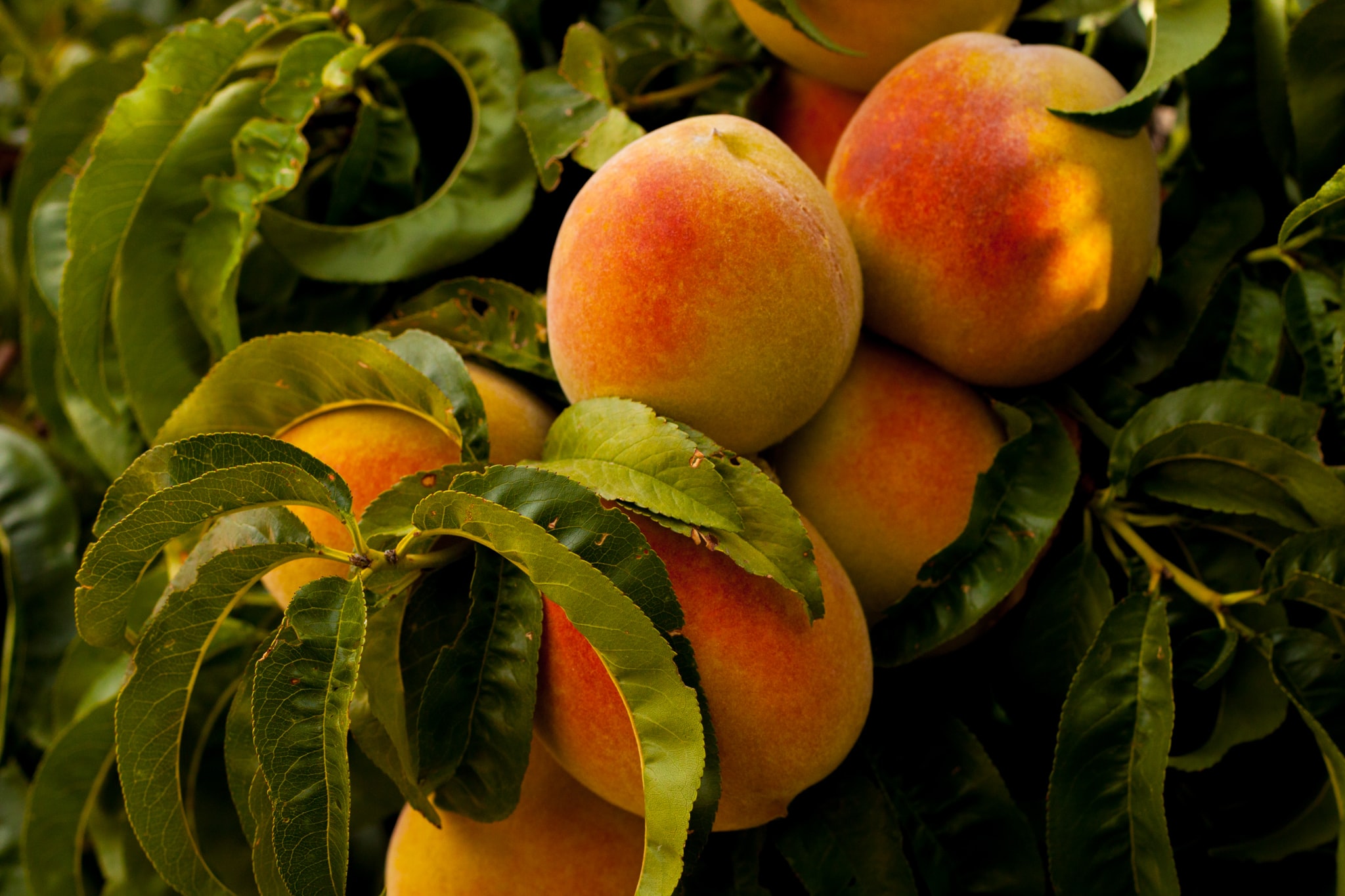
Now, I understand the temptation is real when you see shiny red strawberries at the store in January…but this will cost you…a lot!
It’s essential that you buy fruit and vegetables that are in season in order to save money and eat better! I am sure you have noticed the difference…a strawberry from Egypt eaten in January tastes so bland. But try some strawberries when they are in season and they are so sweet and juicy! They don’t have to travel hundreds of miles before they reach your palate.
3. Cook, Cook, Cook!
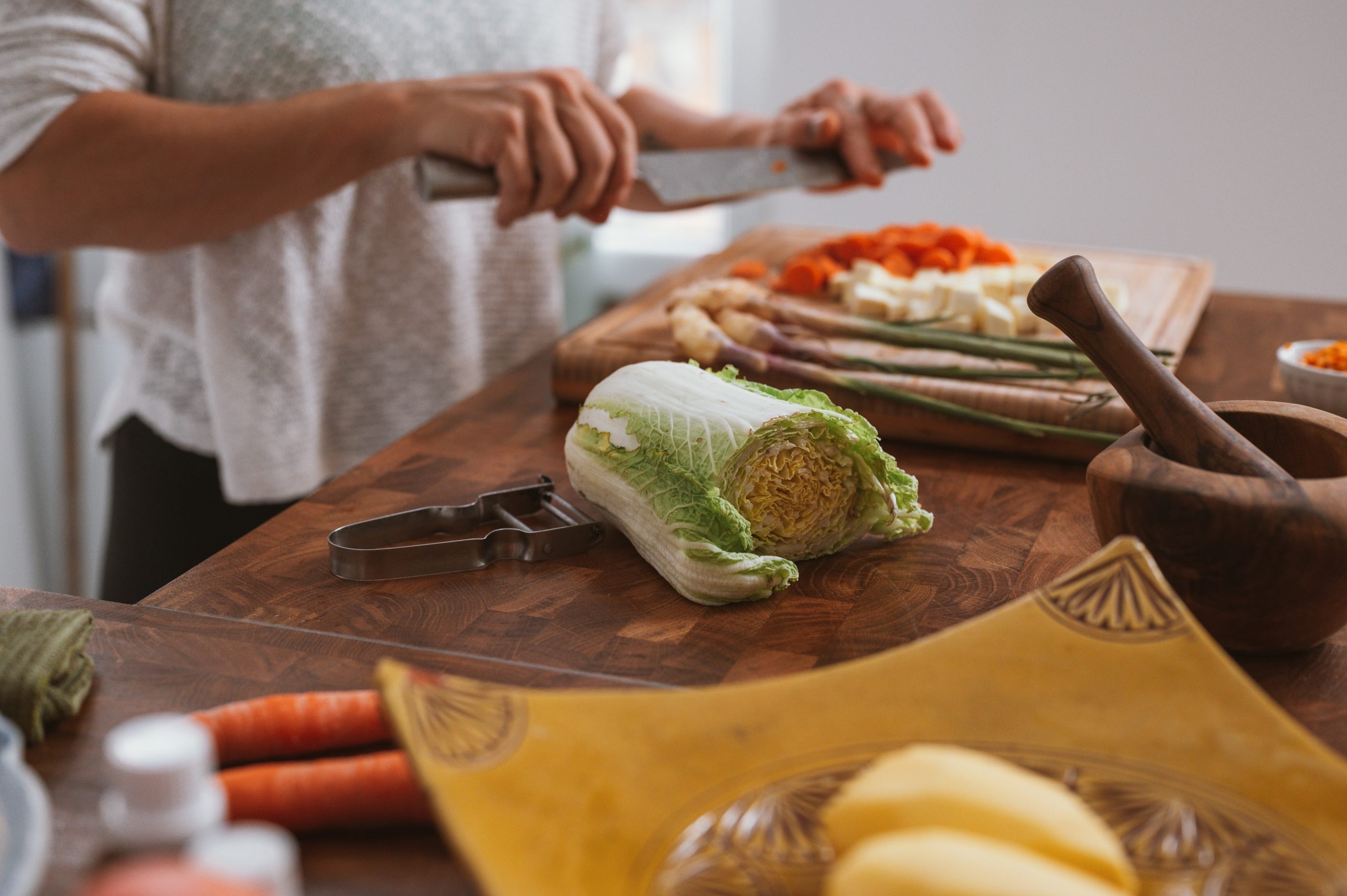
Eating Healthy Doesn’t Have To Be Expensive if you cook your meals! it’s really important that you cook some of your meals, or pre-pack your lunches for work. It will save you tons of money.
As we mentioned earlier, pre-made healthy food will cost you twice as much as any other unhealthy food.
For more information on healthy eating on a budget – visit this page.
What is my idea of a healthy diet – and how do I incorporate it into my life/diet:
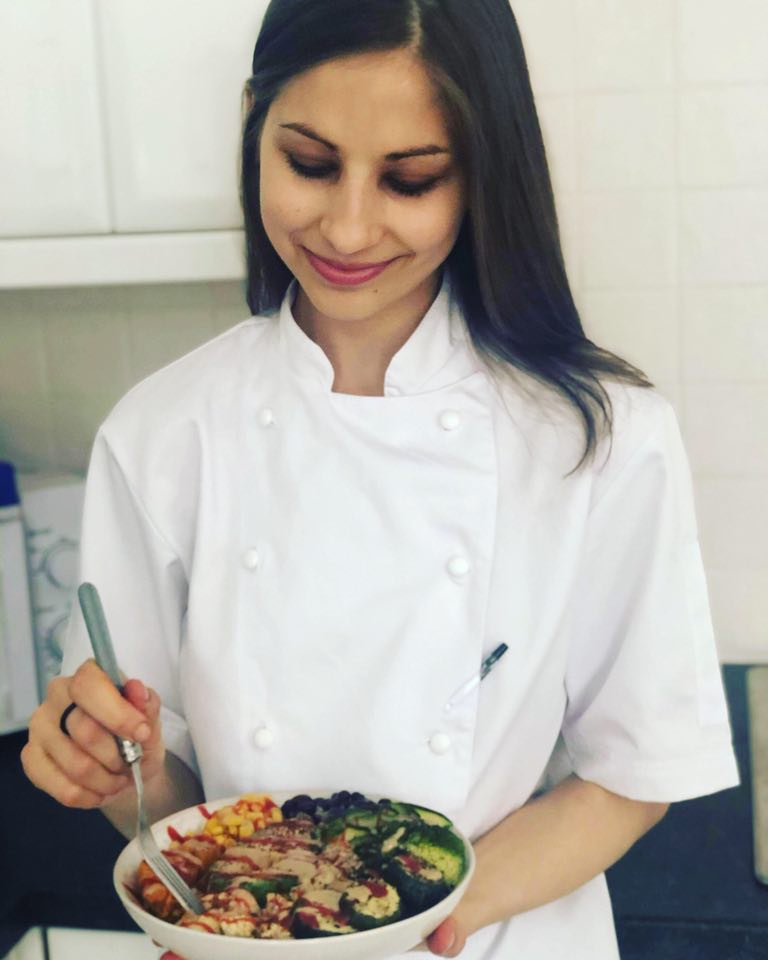
First off – I am Vegan. And no, I am not Vegan for health reasons – I am Vegan because I’ve always liked eating plant-based. I also got food poisoning eating chicken on 2 occasions. I watched a couple of documentaries too, and here I am.
But, do we need meat for a healthy diet? My answer is no. At least not nowadays when the chickens are injected with all sorts of poisons to grow quicker etc. Of course, the same goes for the vegetables – chemicals and all sorts are sprayed, but essentially, the protein comes from plants. Which is then being consumed by the animals – which we then consume the animals – which is processed. And what did we say about processed food? – It’s not the healthiest!
Most of us saw the story when the World Health Organization declared processed meat a “carcinogen” which increases one’s risk of colon or rectum cancer by 18 percent. But it’s not just processed meat that puts you at risk. A vast array of studies from top universities and independent researchers has found that eating chickens, cows, and other animals promote cancer in many forms. Large studies in England and Germany showed that vegetarians were about 40 percent less likely to develop cancer compared to meat-eaters, the most common forms being breast, prostate, and colon cancers. A 2014 Harvard study found that just one serving a day of red meat during adolescence was associated with a 22 percent higher risk of pre-menopausal breast cancer and that the same red meat consumption in adulthood was associated with a 13 percent higher risk of breast cancer overall.
However, I am not the preachy type of Vegan. As I said above previously – everything in moderation is FINE. I do surely, recommend you switch to veganism. But if it’s difficult for you to cut down on meat, then so be it – just be mindful.
Another thing is that just because you are vegan doesn’t mean your diet is healthy!
When you think about veganism you probably think that all vegans eat is salad and broccoli – the reality though, is that this is actually not true. Especially these days when there are so many vegan options out there – there is also a lot of junk. Fries, burgers, ice-cream, cookies. Vegans can eat everything meat-eaters eat, it’s all just cooked vegan. And what happens when we consume excessive processed food? Our diet becomes unhealthy.
So – Vegan or not – you can still be very unhealthy.
SO what do I do?
I make sure that every meal I have, has some form of less processed food – e.g – vegetables, fruit.
An example day meals would be:
Breakfast:
2 Pea Cookies, & 1 toast with avocado spread.
Lunch:
Roasted Eggplant Chickpea Salad With Pomegranate & Mint
Snacks:
Hummus with carrot sticks
Banana with almond butter
Dinner:
Gluten-free quinoa crusted pizza
Do I eat junk? – Of course I do – most days actually – it’s all just very moderate. Am I healthy? – Yep. Am I happy? -Yep.
So, guys, this is what a healthy diet is – when your body is happy and your mind is happy.
Summary:
It’s so important that you are in harmony with your body and mind. Don’t do something because you know it’s healthy or good for you if you think it will make you unhappy. If you enjoy crips and chocolate, sure don’t give them up, just make sure you include some fresh unprocessed foods in your diet whenever possible. You don’t have to go all in to be healthy, your mental health and happiness are more important.


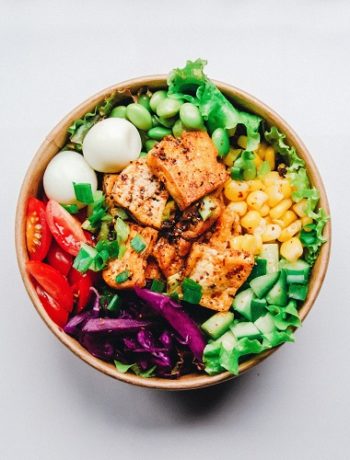

No Comments